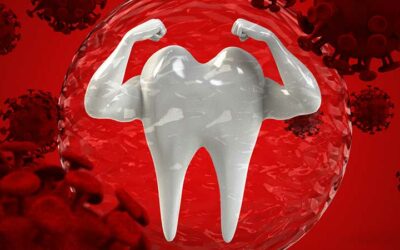Top Food for Teeth and Gums
Below are our Food & Drink recommendations for healthy teeth:
1. Vegetables and Fruits (carrots, apples, cucumbers, beets)
Carrots, apples, cucumbers, and beets contain as many vitamins and trace elements as no other useful food for healthy teeth has. For example such as beta-carotene, vitamins B, D, E, K, C, PP.
- Calcium
- Potassium
- Magnesium
- Sodium
- Phosphorus
- Iodine
- Fluorine
- Iron
- Сobalt
- Silver
These elements normalize blood circulation in the gums and are necessary for healthy teeth.
Our teeth and gums become accustomed to soft foods. Eating soft products we make our oral system function abnormally. As a result, we face with a plaque and impaired blood circulation appearance. However, just a couple of hard vegetables or fruits a day – and your gums are provided with a good massage, and your teeth get rid of deposits. Also, these vegetables stimulate the release of saliva, continually washing the mouth and reducing the number of bacteria.
2. Greens (parsley, lettuce, onion, dill, celery)
Greens are essential not only as foods good for teeth but also as a source of vitamins for the whole organism. Green strengthens not only the teeth but also the immune system and blood vessels. It improves blood formation and eliminates gums bleeding.
Parsley and onions have a natural antibacterial, refreshing and odor-destroying effect. Their juice penetrates hard-to-reach places, whitens teeth, removes plaque, strengthens and massages gums.
3. Berries (currants, grapes, strawberries, cranberries)
Berries are another option of food for healthy teeth and gums. They contain a unique combination of organic acids, pigments, and pectins. Juice of some berries is recommended to use for the prevention of caries. For example, cranberry juice due to its bactericidal action reduces the likelihood of caries. The components of berry juices block bacteria access to tooth enamel.
Grapes can also be used for the prevention of caries because it contains a whole range of minerals and trace elements that have a beneficial effect on teeth and gums. Besides, there are substances in grapes that block the vital activity of pathogenic microbes in the oral cavity.
4. Nuts (almonds, pine nuts, cashews)
Nuts contain all essential amino acids, polyunsaturated fatty acids and other mineral elements that determine their high nutritional value and makes one of the best food for teeth.
Cashew nut contains a unique substance. It can neutralize bacteria that destroy tooth enamel.
Pine nut contains vanadium, which affects the development of bone tissue, phosphorus involved in the formation and preservation of teeth and bones, calcium, which is the main component of bones and teeth.
The almond contains substances that improve the condition of the oral cavity, in addition, it has analgesic and antispasmodic action.
5. Dairy Products (cheese, cottage cheese, yogurt)
In addition to calcium, potassium, magnesium, and group A, B, and D elements, which are essential vitamins for teeth, dairy products have some extra benefits.
Yogurt reduces the amount of hydrogen sulfide, which is the main factor causing unpleasant breath, quickly raising the pH level. Phosphates, calcium, and casein from yogurt help with teeth mineralization.
Cheese can be considered an effective product for caries preventing. It increases the concentration of calcium in tooth enamel by 60%. Cheese consumption also affects the volume of saliva, which contains components that prevent the development of caries and gum inflammation.
Cottage cheese contains proteins, lactic acid, iron, and magnesium. It is well absorbed by the body, and involved in the formation of bone tissue, nutrition of the nervous system and the creation of hemoglobin in the blood.
6. Citrus Fruits (grapefruit, lime, orange)
Citrus fruits also have a unique mix of substances beneficial for dental health.Citrus aromas not only tone up, elevate mood, reduce sleepiness and increase attention and disability, but also have a beneficial effect on teeth and gums. For example, daily consumption of grapefruit, one of best fruit for teeth, reduces gum bleeding and the risk of inflammatory diseases of the oral cavity.
7. Seafood (fish, shrimp)
From the dietetics perspective, seafood is almost perfect food, because of its microelements and vitamins, such as calcium, phosphorus, fluorine, vitamins B1 and D. Lack of these components can provoke bone fragility and teeth and gums diseases.
A large amount of calcium and fluoride you can get from seafood affects the prevention of teeth and gum diseases since these components serve as a source for building bones, growing teeth, preventing the formation of plaque and the destruction of enamel.
Drinks
- Black and green tea
Both black and green tea are drinks that are good for your teeth, due to the substances that stop the development of bacteria. Antioxidant catechin, which is part of tea, kills bacteria that cause caries and bad breath. On the other hand, drinking a cup of tea after a meal refreshes our breath and cleanse the oral cavity, thereby protecting gums and strengthening teeth.
- Water
Clean water, enriched with fluorine, also has a positive effect on dental health. Fluoridated water:
- strengthens the tooth enamel
- prevents the occurrence of caries
- inhibits the formation and accumulation of soft plaque
- suppresses the vital activity of microorganisms.
All of these lead to a decrease of accumulation of organic acids in the oral cavity.
Knowing these critical ingredients to saturate your body with vitamins and minerals you can get not only healthy teeth or gums, but support the whole organism with the right nutrition. Feeling good and smiling more often, guarantee you a perfect mood and energy for the entire day!
You May Also Like...
Improve Your Smile, Improve Your Oral Health: Why You Should Consider Seeing a Periodontist for Cosmetic Procedures
When it comes to enhancing your smile, today's dental patients have a wealth of options. Choices, like in-office tooth...
When Should You See a Periodontist?
Often, people confuse the work of a dentist with that of a periodontist. If you’ve had the occasion to visit both,...
Oral Health and Periodontitis Associated with the Severity of COVID-19
Over the past year, there has been significant research showing a link between severe periodontal disease and...



